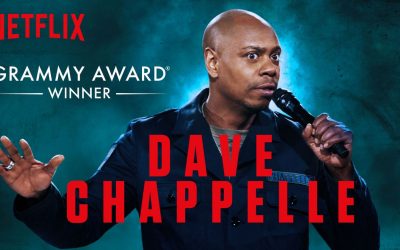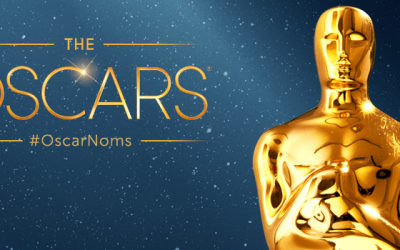Depicting one man’s competence and confidence with psychological depth, director Clint Eastwood (Jersey Boys, American Sniper, Gran Torino, Invictus) made another little character masterpiece with Sully, starring Tom Hanks as Captain Chesley Sullenberger.
Mr. Hanks has never been better and neither has his co-star, Aaron Eckhart (The Dark Knight, Thank You for Smoking, Love Happens) as the commercial airline pilot’s loyal first officer. Their camaraderie in and out of the cockpit seals a bond in this simple, powerful movie about the January 15, 2009, US Airways water landing that became known as “the miracle on the Hudson”.
That the Hudson River touchdown, which spared all lives on board, is an act of rational man, not a miracle, stabilizes the newest film by Warner Bros. and Mr. Eastwood. The movie’s real conflict is also manmade—it’s a galling aftermath initiated by the U.S. government. Captain Sullenberger, known as “Sully”, faces an outrageous inquisition in the hours that follow the harrowing, historic aviation disaster.
“Clear for takeoff” in voiceover is how the movie begins and the visceral, shocking story is depicted without gratuitousness, trivialization or triumphalism, all of which could be deadly to this delicate undertaking, which, at its core, is a badly needed shot of post-9/11 heroism.
The Islamic terrorist attack on September 11, 2001, hangs over New York City throughout the movie. The sight of a plunging, screaming commercial jet about to crash in New York City after 9/11 was not unprecedented—look up the mysterious and forgotten Nov. 12, 2001, American Airlines flight 587 crash in Queens—and Sully’s skillful actions briefly but solidly united the fracturing nation, which had tumbled in an economic collapse and elected a new president.
That context figures deftly into Sully, which folds the fundamental change including economic hardship into its leading character. But what’s distinctive about Sully—based on the airline captain’s own memoir—is its capacity to show that man at his best is both rational and whole.
By this I mean that, as usual in Clint Eastwood‘s recent pictures, the hero is a work in progress, neither one with feet of clay nor one with abs of steel and this is a key part of Sully‘s point, as the audience discovers in a quietly climactic scene. The culmination comes after a steady, solid buildup in the 95-minute movie, which does contain disturbing images which may be too harsh for some viewers. I think those scenes, which cannot be discussed without spoiling the plot, are utterly merited. They’re integral, especially given Sully‘s point that to be heroic is human. These scenes are part of a progression in one introverted man’s introspection as he tries to navigate the new American cultural landscape of celebrity, if not necessarily hero, worship, a downward economic trajectory and the fetishization of fame.
Famous and accomplished Tom Hanks (Bridge of Spies, Philadelphia, Apollo 13, Larry Crowne, The Da Vinci Code, Toy Story 3) portrays Chesley Sullenberger with poise and command. The role requires that he show a man in full, to paraphrase Tom Wolfe, who goes from a haunted self-examination in a steamy mirror, self-doubt and fear of being found out as a fraud to supreme confidence in his knowledge of reality and his own judgment. He’s a detective on his own case, putting New York Mayor Michael Bloomberg in his proper place and stressing to Katie Couric the fact of his “whole life”, as against merely this particular part of his life, until he integrates the facts of his extraordinary, slow-handed, guided mastery in the cockpit of an Airbus crippled by a flock of birds.
This transformation occurs between the spine-chilling voices of stewardesses commanding passengers in unison like a chant or a prayer as the plane goes down and the familiarly soothing voice of NBC’s Brian Williams reporting on the incident. All of this is depicted in steps out of sequence while in order of Captain Sullenberger’s coming-to in a mind-numbing time in his life. Yet Mr. Eastwood and screenwriter Todd Komarnicki never let the audience forget that it happens while this man is suffering from post-traumatic stress disorder with not a single human from the airline or government offering to help. That no one takes care of strong, heroic men—including Eckhart’s character and a devastated air traffic controller—is an unmistakable aspect of this unforgettable film.
As he was in Spotlight and Stephen King’s The Stand, actor Jamey Sheridan as what amounts to the main villain, an evasive government bureaucrat that won’t look Sully in the eye when it counts, delivers a slippery contrast to the hero. Laura Linney (Mr. Holmes, Kinsey, Frasier) as the wife at home fits the role that drives Sully‘s subtext that the hero in today’s world is cast out by dominant forces on his own. The rest of the actors are fine, too, with Molly Hagan (Shootdown, The Lucky Ones, Some Kind of Wonderful) especially good as stewardess Doreen and Anna Gunn (TV’s Portlandia, Breaking Bad) shining as a government worker with a conscience.
Like next week’s opener, Oliver Stone’s Snowden, Clint Eastwood’s Sully focuses on the much-maligned lone, true life white male as a hero in Obama’s America; a sensitive, intelligent individual of ability breaking rules to trust instead his own judgment even when it means going against the state, in particular the Obama administration.
Sully fills out Sully’s cinematic, arresting story with multiple heroes—New York City policemen who follow baseball, rescue divers and the sure-handed captain of a boat named after Thomas Jefferson—including the sterling flight 1549 crew of Eckhart’s Jeff Skiles and a band of heroic stewardesses and it welds the cold, hard facts of Sully’s story to the unspoken pain over unavenged mass murder on 9/11 with an image of a jet screaming across Manhattan’s skies.
“A pilot never stops acquiring knowledge,” Sully’s father tells the boy in a flashback with a biplane in a piece of advice that the youth carries into a fighter jet. The power of this top virtue, rationality, leads the wounded, self-searching Chesley Sullenberger—with his partner at his side—to recover the power of his productiveness and pride. In letting Sully be seen this way on screen, thanks to Tom Hanks, in his most challenging role since Philadelphia, Mr. Eastwood puts a 21st century hero in a clarifying and rational context.



